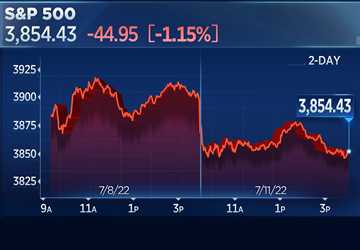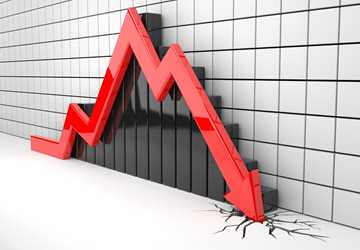What is the Stock Market’s Decline Trying to Tell Us?
Investors smiled at banks during the first two years of the Covid pandemic. But now that the stock market has collapsed, all of that is history. How the day ends is not how the morning begins, and uncertainty in the stock market has investors worried.
On Tuesday, July 5, the Dow Jones Industrial Average rose 2%, the S&P 500 lost 1% and the Nasdaq fell more than 2%. It fell for nine straight weeks, the longest losing streak since World War II. That's not good news, as it could herald a looming recession, possibly the worst yet.

The pandemic may be over, but the stock market has yet to recover. As a result, the Federal Open Market Committee (FOMC) raised the basis point to 75, the highest level since 1994.
If your wealth is in stocks, you must be freaking out because your net worth is dropping every day given the state of the stock market. In 2020, the stock market has peaked and investors are confident that the stock market will rise, making them richer.
The stock market is very unpredictable. However, if you pay close attention to the market, you will understand these patterns. Anything can happen to stocks in the short term, but stocks are rational in the long run. Furthermore, the stock market is independent of the real economy because mathematical formulas and computer transactions influence it.
The Fed's investment in inflation
Investors claimed the Fed was slow to try to salvage the situation and that the decision to take inflation seriously came too late. Federal Reserve Chairman Jerome Powell announced a sharp three-quarters rate hike to fight inflation.
The job market is tight, with more job losses or job losses than expected. If the Fed lowers inflation, the job market has a good chance. Its purpose is to create price stability that controls the labor market.
Consumers saw increases in mortgage rates, credit, fuel, groceries and business investments. Investors worry about whether efforts to rein in inflation will spark a new recession. As a result, consumers can hold back spending while waiting for goods and services to drop in demand and prices.
How low will the stock go?

It is impossible to predict how long and how much the stock will fall. Analysts forecast the future based on past data and historical trends. For example, the war in Ukraine tends to make things worse.
The S&P 500 fell to 3,810.32, its worst performance since 1970, and headed straight into a bear market. The Nasdaq Composite entered a bear market in early March and has stayed there. The forecast noted that the company could see another decline in the second half of 2022. Analysts believe that the U.S. is not yet in a recession, but there is a 35% chance it will enter a recession in the next two years.